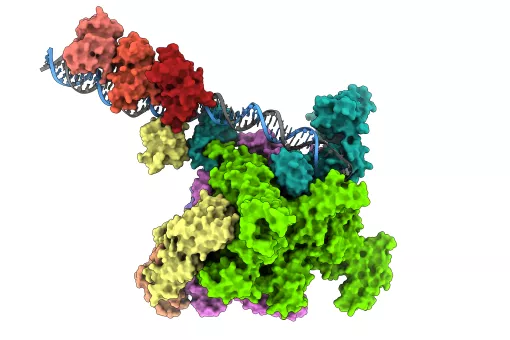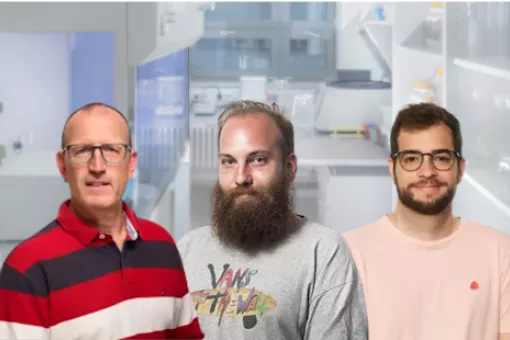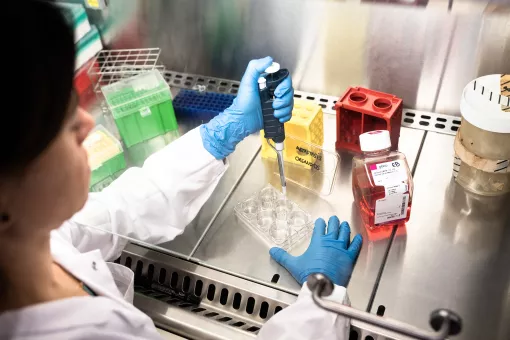Images
- A study performed at IRB Barcelona unveils how the number of copies of genetic material influences the cell death processes that shape organs during development.
- Autophagy, which is a process related to the degradation and recycling of cellular components, plays a fundamental role in response to stress and cancer.
- The study has been published in the journal Autophagy.
During development and associated processes, the programmed death of certain cells plays an essential role in shaping organs and allowing proper growth. This cell death is in some cases an effect of autophagy, a key cellular process responsible for the degradation and recycling of damaged or unwanted cellular components and which, taken to the extreme, may end up eliminating the cell itself.
Led by Dr. Jordi Casanova and Dr. Panagiotis Giannios, a team of researchers at IRB Barcelona and IBMB(CSIC) has revealed the relationship between autophagy and polyploidy, the latter a phenomenon in which cells contain multiple copies of genetic material. In this regard, they have discovered a scenario where the level of autophagy is much higher in cells with several copies of DNA and that it can even trigger this programmed cell death.
Published in the journal Autophagy, this finding sheds light on the biological processes that shape organisms during the early stages of life, and it paves the way to a better understanding of developmental diseases and also cancer.
“Polyploidy is a common phenomenon in many species, including humans, and understanding its implications for embryonic development could have a significant impact medicine,” explains Dr. Casanova, head of the Development and Morphogenesis in Drosophila lab at IRB Barcelona.
Progenitor cells and polyploidy
Progenitor cells can give rise to different cell types. In the case of the Drosophila melanogaster fly, the animal model used in this study, the progenitor cells are larval cells that conserve the capacity to give rise to the adult organism. These cells do not present polyploidy (they have a single copy of the set of chromosomes) and this allows them to survive metamorphosis and form part of the adult.
"In the case of cancer, it is common for cells to have several copies of DNA (polyploidy), and this property might confer increased resistance, for example, to chemotherapy treatment. This is why it is important to understand this process," adds Dr. Giannios, a postdoctoral researcher in the same laboratory.
Polyploidy in the trachea of the fruit fly
To study this process, the researchers worked with the trachea of the D. melanogaster fly as a model, which presents a variety of cells of the same type, some with polyploidy and others without.
"Working with the trachea of the Drosophila fly has allowed us to compare cells of the same type, some presenting polyploidy and others not, and to see how polyploidy correlates with cell death during metamorphosis," explains Dr. Beatriz Pino-Jiménez, first author of the work, who carried out this project as part of her doctoral studies.
The research team is now working to determine whether polyploid cells respond better to stress situations and, if so, what the mechanisms underlying this response are.
This work was funded by the Spanish Ministry of Science and Innovation and the Government of Catalonia.
Related article:
Polyploidy-associated autophagy promotes larval tracheal histolysis at Drosophila metamorphosis
Beatriz Pino-Jiménez, Panagiotis Giannios & Jordi Casanova
Autophagy (2023) DOI: 10.1080/15548627.2023.2231828
About IRB Barcelona
The Institute for Research in Biomedicine (IRB Barcelona) pursues a society free of disease. To this end, it conducts multidisciplinary research of excellence to cure cancer and other diseases linked to ageing. It establishes technology transfer agreements with the pharmaceutical industry and major hospitals to bring research results closer to society, and organises a range of science outreach activities to engage the public in an open dialogue. IRB Barcelona is an international centre that hosts 400 researchers and more than 30 nationalities. Recognised as a Severo Ochoa Centre of Excellence since 2011, IRB Barcelona is a CERCA centre and member of the Barcelona Institute of Science and Technology (BIST).








